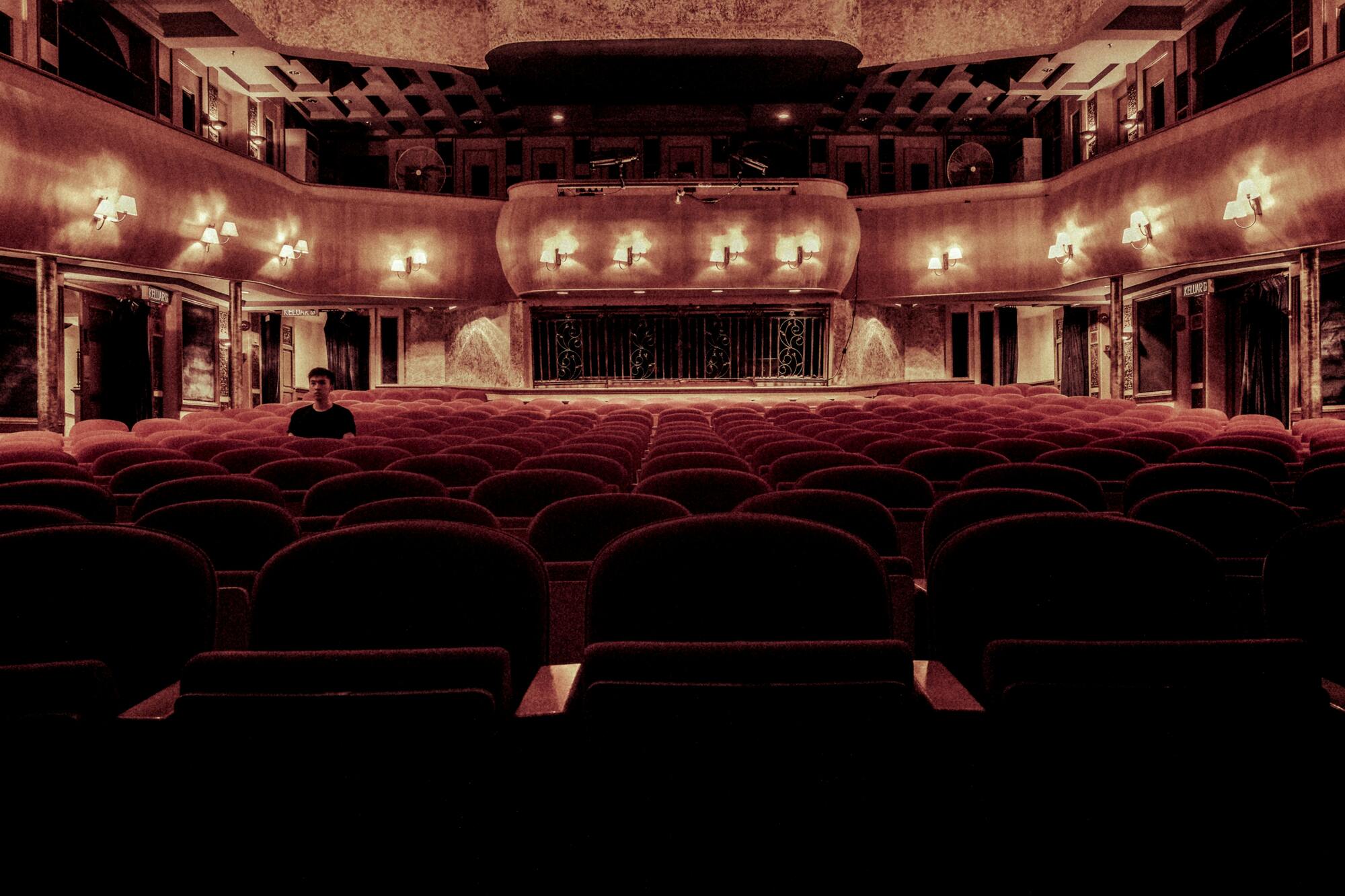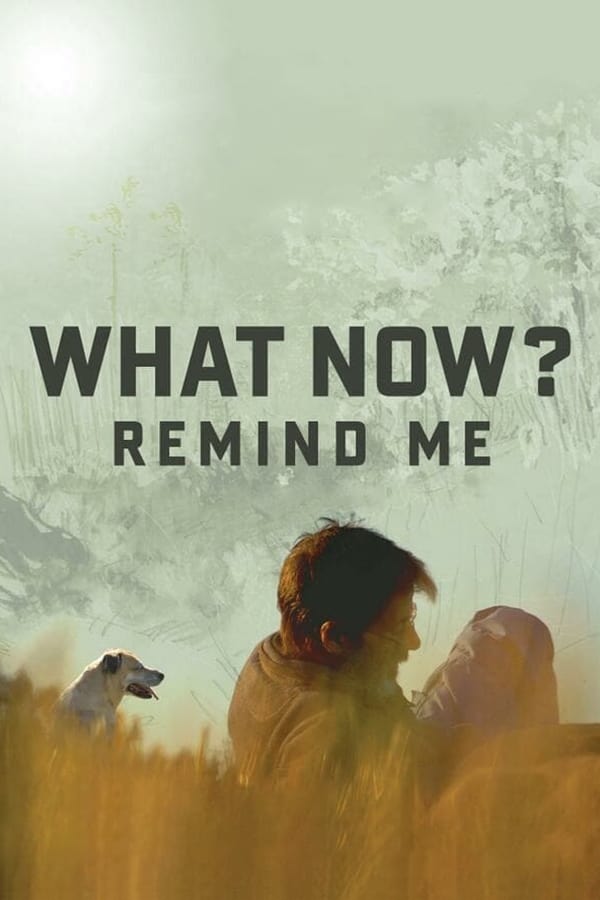How to watch Where Do You Stand Now, João Pedro Rodrigues? in United Kingdom
João Pedro Rodrigues answers the question from the title with an autobiographical short-film. Discover "Where Do You Stand Now, João Pedro Rodrigues?" a captivating documentary movie that first graced the screens in 2016. This production, originating from Portugal.
Watch "Where Do You Stand Now, João Pedro Rodrigues?" now on DocAlliance Films, and explore even more ways to dive into your favorite movie with Popcorn Time ultimate streaming guide.
Where Do You Stand Now, João Pedro Rodrigues? is ranked #51584 on the Popcorn Time Streaming Charts today in United Kingdom. The movie has dropped 2 places since yesterday.

The Popcorn Time ranking system calculates popularity by combining data from multiple trusted sources, including streaming platforms, peer-to-peer trends, and global databases.
Our algorithm dynamically adjusts rankings based on how content performs across different platforms, regions, and timeframes. Each movie or show is scored using a combination of its global position, regional popularity, and historical performance. This ensures a fair, accurate, and constantly updated reflection of what's trending in United Kingdom.
Similars to Where Do You Stand Now, João Pedro Rodrigues?
Movie
The couple Laura and Israël have a five-year-old son, Lucas. They live together but seem to have lost interest in one another's thoughts and cares. Their relationship seems headed for the rocks, and the only one who seems to still be looking for something from life is Lucas.
Abandonment (2021 )
Movie
After a spell cast by Grandma Faraway, the oldest son of a small family encounters the ghost of his late Grandma Maria still living in her old house, and they chat as they used to.
Ghosts: Long Way Home (2019 )
Movie
In a remote village called Bostofrio, a young filmmaker breaks the law of silence in order to unearth the story of his grandfather. A series of awkward and funny interviews that reveal the secrets and half truths that are the fabric of rural Portugal.
Bostofrio (2018 )
Movie
Jorge de Sena was forced to leave his country. First he moved to Brazil, and later to the USA. He never returned to Portugal. During his 20-year-long exile, he kept an epistolary correspondence with Sophia de Mello Breyner Andresen. These letters are a testimony of the profound friendship between the two poets, letters of longing and of desire to “fill years of distance with hours of conversation”. Through excerpts and verses, a dialog is established, revealing their divergent opinions but mostly their strong bond, and their efforts to preserve it until their last breaths.
Correspondences (2016 )
Movie
The National Ballet of Portugal is celebrating its 40th anniversary. Since its foundation, it has aimed to present the great classics, as well as to always welcome contemporary creations. Day-to-day life is demanding for dancers, choreographers, musicians, répétiteurs, seamstresses, light technicians, sound technicians, and other elements of a large staff that make it possible for dance to travel through the rehearsal rooms and linger in the hallways before making it onto the stage. This film follows not only the company’s creations and premieres, but mainly each dancer’s silent and structural work.
In the Darkness of the Theater I Take Off My Shoes (2016 )
Movie
There's a film subtitler. There's a film she must urgently subtitle. There's the plot of that film, with which she relates on a level that will remain enigmatic to us. And in that film within the film there's a main character, whose dreams are being devoured, and other characters, interested in dreams as well, but far more practical. And there¹s music, and a promise of music. Timelessly wandering through the world.
Paul (2016 )
Movie
Every family has its secrets, the family of Portuguese filmmaker Mourão included. As the granddaughter of the well-known writer Tomaz de Figueiredo, she picks apart several of them in an intimate yet universally meaningful way. As such, her film also becomes a portrait of dictatorship and resistance and of the urge to create art.
The Wolf's Lair (2015 )
Movie
Joaquim Pinto has been living with HIV and VHC for almost twenty years. “What now? Remind Me” is the notebook of a year of clinical studies with toxic, mind altering drugs as yet unapproved. An open and eclectic reflection on time and memory, on epidemics and globalization, on survival beyond all expectations, on dissent and absolute love. In a to-and-fro between present and past memories, the film is also a tribute to friends departed and those who remain.
What Now? Remind Me (2014 )
Watch free movies or series like Where Do You Stand Now, João Pedro Rodrigues?, made in United Kingdom
TV Show
A brilliant math student is on the verge of a major breakthrough when a shadowy enemy tries to stop him. Fighting for answers—and his life—he teams up with a government agent to unravel a high-stakes conspiracy.
Prime Target (2025 )
TV Show
The dramatised account of how the world’s greatest Special Forces unit, the SAS, was formed under extraordinary circumstances in the darkest days of World War Two.
SAS Rogue Heroes (2022 )
TV Show
Geordie Shore is a British reality television series broadcast on MTV. Based in Newcastle upon Tyne, it premiered on 24 May 2011, and is the British spin-off of the American show Jersey Shore. "Geordie" is the regional nickname and dialect given to the people of the Tyneside area of North East England, and is closely associated with the city of Newcastle upon Tyne and its environs where the show is set. However the show includes cast members from various parts of North East England.
Geordie Shore (2011 )
TV Show
Follow a dysfunctional team of MI5 agents—and their obnoxious boss, the notorious Jackson Lamb—as they navigate the espionage world's smoke and mirrors to defend England from sinister forces.
Slow Horses (2022 )
TV Show
The tight-knit Garvey sisters have always looked out for one another. But when the toxic brother-in-law they all wanted dead actually dies, it turns their lives upside down and tests their bond like nothing before.
Bad Sisters (2022 )
Movie
When the plots of reclusive author Elly Conway's fictional espionage novels begin to mirror the covert actions of a real-life spy organization, quiet evenings at home become a thing of the past. Accompanied by her cat Alfie and Aiden, a cat-allergic spy, Elly races across the world to stay one step ahead of the killers as the line between Conway's fictional world and her real one begins to blur.
Argylle (2024 )
TV Show
A brilliant but idiosyncratic British detective and his resourceful local team solve baffling murder mysteries on the fictional Caribbean island of Saint-Marie.
Death in Paradise (2011 )
TV Show
When an intriguing novel appears at the bedside of a journalist whose career has been built on revealing transgressions, she is horrified to realize she's a key character in a long-buried story—one that exposes her darkest secret.
Disclaimer (2024 )
Explore even more streaming options for Where Do You Stand Now, João Pedro Rodrigues?!
Learn where Where Do You Stand Now, João Pedro Rodrigues? is offered in United Kingdom and beyond. Available , you can stream it on leading platforms such as . It's in 14 more regions, ensuring you have legal access everywhere you go.
More Info
- Runtime
- 20 minutes
- Released
- Origin Country
- Portugal
- Languages
- en























